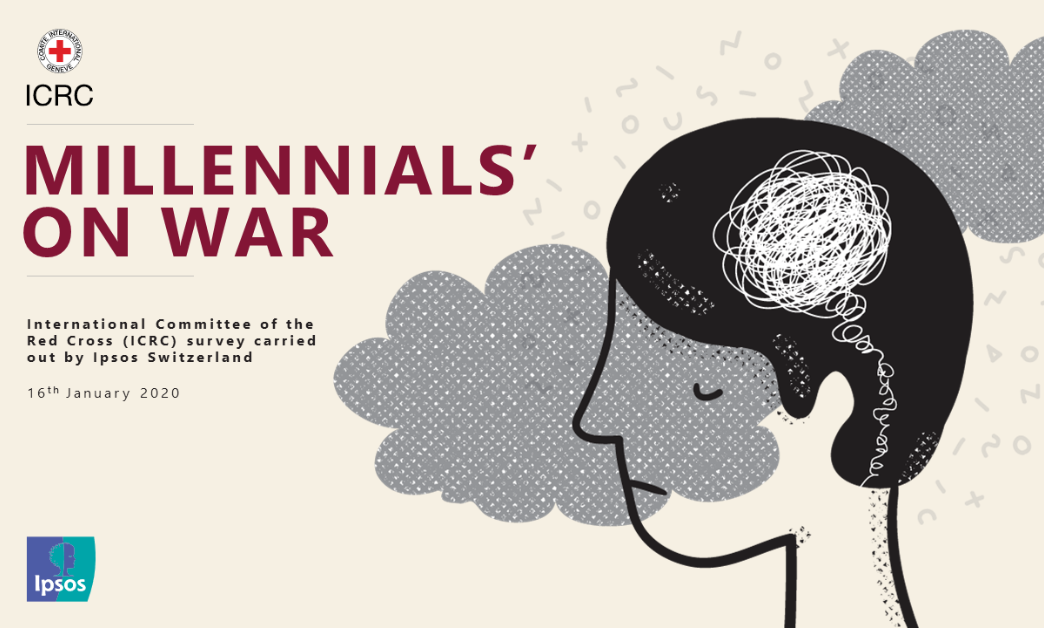Millennials are against use of nuclear weapons in any circumstances
 The ICRC survey of more than 16,000 millennials in 16 countries and territories last year, including countries in peace and those experiencing conflict, explored millennials' views on conflict, the future of warfare and the values underpinning international humanitarian law, such as the use of torture against enemy combatants.
The ICRC survey of more than 16,000 millennials in 16 countries and territories last year, including countries in peace and those experiencing conflict, explored millennials' views on conflict, the future of warfare and the values underpinning international humanitarian law, such as the use of torture against enemy combatants.
Almost 47 percent think it's more likely than not that there will be a third world war in their lifetime. Encouragingly, 74 percent of millennials also believe that wars are avoidable, and nearly the same number (75 percent) think that limits must be imposed on how wars are fought.
Nuclear Weapons
Although 84 percent believe the use of nuclear weapons is never acceptable and 82 percent see nuclear weapons as threat to humanity, 54 percent believe it is more likely than not that a nuclear attack will occur in the next decade. The same number, 54 percent, believe nuclear weapons should be banned.
Millennials' Top Concerns
Despite millennials' views on a future nuclear strike, young people also said that nuclear weapons were the least concerning out of 12 issues. Corruption was the most concerning with 54 percent of millennials naming it; unemployment was next at 52 percent; increasing poverty and terrorism were next, both with 47 percent; and then war and armed conflict at 45 percent. Nuclear weapons were named by 24 percent.
Future of Combat
On the issue of future conflict, 36 percent of millennials said that autonomous drones and robots – those not controlled by humans – will increase the number of civilian casualties in wars and armed conflict; 32 percent said it would lower the number of civilian casualties and 24 percent said it would make no difference.
Civilian Casualties
78 percent of millennials across 16 countries said combatants should avoid civilian casualties as much as possible. The number was higher in peacetime countries than conflict countries (83 percent vs. 73 percent).
Mental Health
Overall, 73 percent said that addressing mental health needs of victims of conflict is just as important as addressing food, water, and shelter. The highest response came from Syria at 87 percent; the lowest came from Israel at 60 percent.
Torture
55 percent said that torturing an enemy combatant is never acceptable; the highest responses came from Syria and Colombia, both with 71 percent; the lowest responses came from Israel at 23 percent and Nigeria at 29 percent.
Geneva Conventions
75 percent think that 70 years after the creation of the Geneva Conventions, there remains a need to impose limits on the ways wars can be fought. Overall, 54 percent of millennials have heard of the Geneva Conventions, with the highest numbers in Syria (81 percent), Russia and Ukraine (both 76 percent), France (75 percent) and Switzerland (74 percent).
More information on the study could be found on ICRC website Millennials on War.




